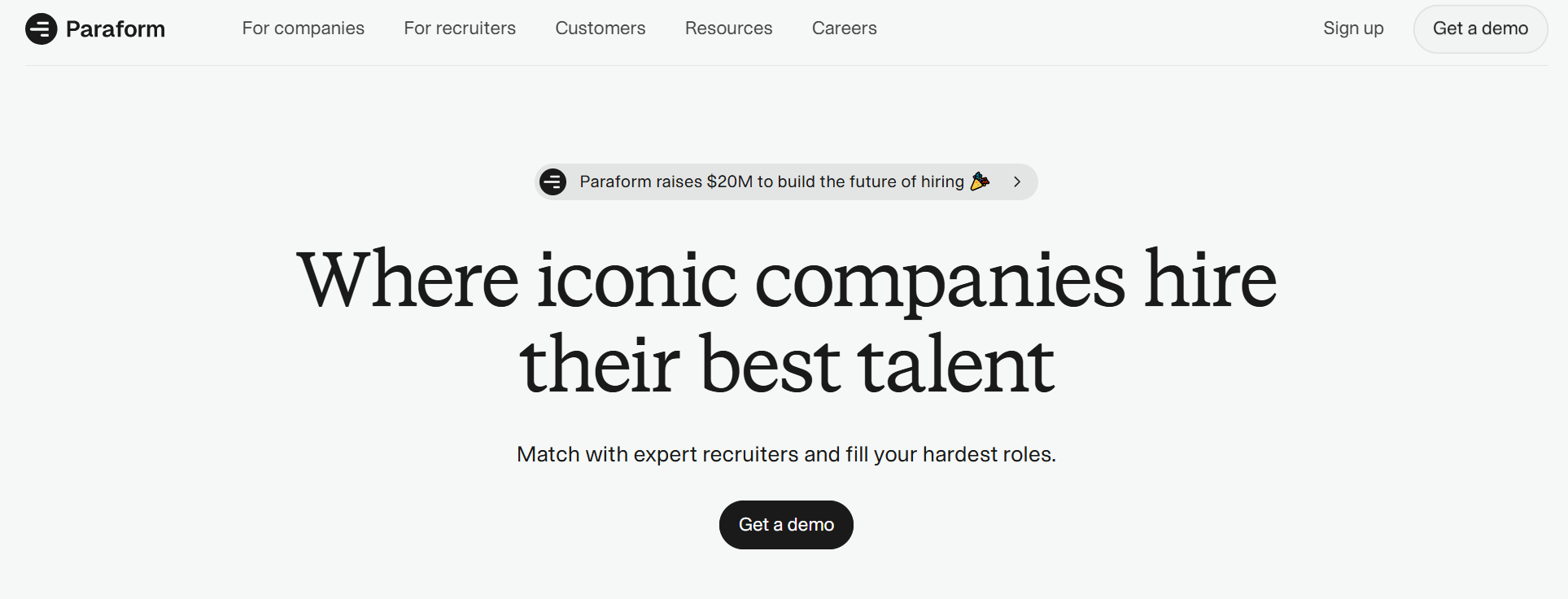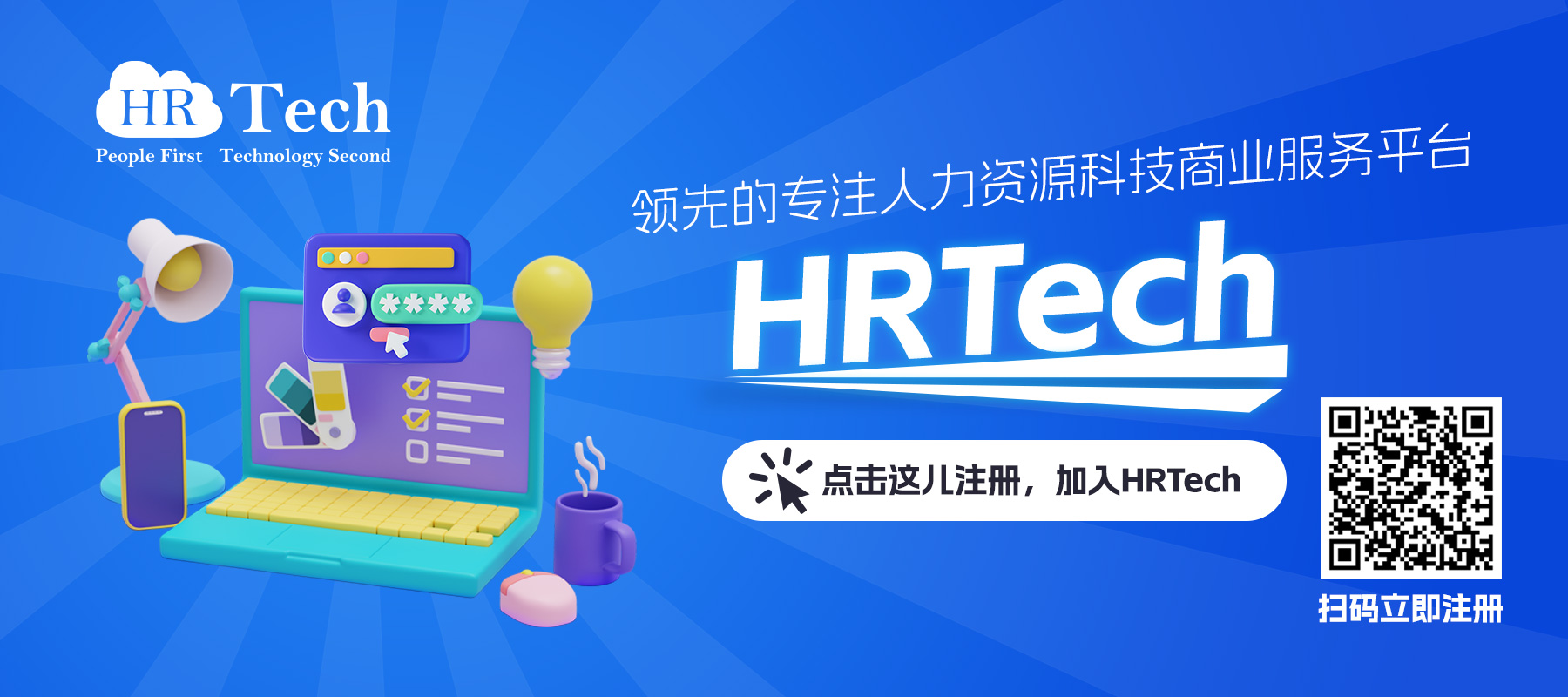-
 资讯
资讯
LinkedIn因违反欧盟GDPR被爱尔兰数据保护委员会罚款3.1亿欧元
LinkedIn因违反欧盟《通用数据保护条例》(GDPR)被爱尔兰数据保护委员会罚款3.10亿欧元(约合3.34亿美元)。调查始于2018年,法国非营利组织La Quadrature du Net提交投诉,指出LinkedIn广告数据处理方面存在问题。爱尔兰监管机构发现,LinkedIn在处理个人数据时未能遵守GDPR第6(1)条的法律依据要求。虽然LinkedIn声称一直遵守规定,但已被要求在规定时间内纠正数据处理方式。完整决定将在稍后公布。
全球最大的在线招聘广告平台LinkedIn因其个人数据处理方式被爱尔兰数据保护委员会罚款3.10亿欧元(约合3.343亿美元)。此外,LinkedIn还收到了谴责,并被要求将其数据处理操作改为符合规定。
调查揭示:未获用户许可的隐私数据处理
根据爱尔兰DPC的调查,LinkedIn使用了未经授权的个人数据,用于定向广告服务。具体而言,LinkedIn在用户不知情的情况下,追踪他们的在线行为,以推送更加个性化的广告。LinkedIn声称其基于“用户同意”或“合法利益”作为法律依据进行数据收集,但经过调查,这些理由未能满足GDPR的严格标准。DPC指出,LinkedIn在数据收集过程中缺乏透明度,未能获得用户的明确同意,严重违反了GDPR的规定。
自2018年8月起,欧洲官员开始调查LinkedIn的做法,这一调查源于法国非营利组织La Quadrature du Net的投诉。该投诉最初提交给法国数据保护机构,随后转交给负责LinkedIn的主要监督机构——爱尔兰数据保护委员会。
爱尔兰数据保护局在其决定中指出以下几点:
根据GDPR第6(1)条款,缺乏适当法律依据进行个人数据处理是对数据主体基本数据保护权利的严重侵犯。
GDPR要求数据处理必须遵循公平原则,即个人数据不得以损害、歧视、意外或误导数据主体的方式进行处理。
透明性条款的合规确保数据主体在数据处理前完全了解处理的范围及后果,并能够行使其权利。
完整的最终决定将在稍后公布。
科技行业的警示
这一事件不仅对LinkedIn构成打击,也为整个科技行业敲响了警钟。在当今数据驱动的世界中,越来越多的企业依赖于用户数据来提供个性化服务,如定向广告。然而,企业在处理个人数据时必须确保完全符合GDPR的要求,尤其是在透明度和用户同意方面。随着欧盟对数据保护的监管力度加大,所有在欧盟运营的科技公司都必须采取严格措施,确保数据处理合规,避免类似的处罚。
未来展望:隐私保护将成重中之重
此次事件表明,隐私保护将成为未来科技行业的核心议题。随着技术的进步,数据收集和分析变得更加复杂,企业必须加倍努力确保符合GDPR等法规的要求。这不仅需要定期进行隐私审查,还需要不断更新隐私政策,确保用户数据的安全使用。除此之外,企业还需加强对员工的培训,提升他们对数据保护的意识,以减少违规风险。
LinkedIn的案例揭示了数据隐私保护不容忽视的重要性。企业必须在透明度、用户同意和合法性之间取得平衡,否则将面临法律和声誉的双重打击。随着监管环境的日益严格,科技公司只有通过主动合规,才能在未来的市场中立于不败之地。
-
 资讯
资讯
【丹麦】帮助农民和植物育种者降低人工成本的技术公司FarmDroid获得1050万欧元融资
帮助农民和植物育种者降低人工成本的初创公司FarmDroid获得了 1050 万欧元的投资,以加速其自主太阳能农业机器人在传统市场的扩张。
本轮融资由 Convent Capital 领投,EIFO 和 Navus Ventures 参投,总投资额近 8000 万丹麦克朗。FarmDroid 机器人可以播种、清除杂草,并通过新型微型喷洒系统减少杀虫剂用量,所有这些都可以在太阳能的驱动下在田间连续作业。现在,FarmDroid 将进一步向全球扩展,同时针对有机和传统露地耕作,提高效率,促进可持续农业发展。
如今,农民面临着重塑未来农业的重大结构性挑战,包括需要减少化学投入、降低对体力劳动的依赖以及削减运营成本。总部位于丹麦 Vejen 的 FarmDroid 公司开发了一种多功能、易操作、重量轻且价格低廉的机器人,可以应对上述几项挑战。作为世界上最畅销的太阳能田间机器人,它为传统耕作方法提供了一种可持续的替代方法,在绿色转型中发挥了重要作用。
FarmDroid 的自主机器人大幅减少了对化学投入的需求,降低了劳动力成本,使农民能够在提高生产率的同时实施更可持续的耕作方法。该机器人能够播种、除草、精确喷洒,并可全天候自主运行。FarmDroid 通过机械除草和精确喷洒,促进生态友好型农业的发展,同时保护土壤健康,大幅降低运营成本。FarmDroid 主要在有机农场证明了其有效性,最近推出的定点喷洒应用为其在传统农业中的广泛应用打开了大门。与传统方法相比,通过机械除草,FarmDroid 可将某些杀虫剂的使用量减少高达 100%。
FarmDroid 的首席执行官和创始人都对三方的投资感到非常高兴。"我们非常自豪能完成这笔投资,它将加强 FarmDroid 的地位,并为开发和扩大农业机器人的使用提供机会。FarmDroid 首席执行官 René Jannick Jørgensen 表示:"这笔投资既有助于提升我们的能力,也有助于提供资金,以扩大我们的业务规模,增强我们的影响力,并推广可持续的、具有经济吸引力的农业解决方案 。
FarmDroid首席执行官René Jannick Jørgensen表示:"FarmDroid的创始人非常高兴地欢迎新投资者加入FarmDroid的成长历程。"在这个过程中,找到合适的合作伙伴对我们来说非常重要,这些合作伙伴了解 FarmDroid 的 DNA,分享我们的愿景,并希望与我们一起踏上未来的征程。随着 Convent Capital、Navus Ventures 和 EIFO 的加入,虽然我们作为创始人仍然是主要所有者,但我们已经为下一步的发展做好了准备。FarmDroid 创始人 Jens 和 Kristian Warming 补充说:"我们的机器人数量已经超过 500 个,下一个里程碑是 1000 个。
此次投资与三位参与投资者的战略完全一致,他们都认识到 FarmDroid 的技术具有重塑现代农业和对环境产生积极影响的潜力。
首席投资者强调说 "在 Convent Capital,我们看重的是既实用又有影响力的解决方案。我们认为,FarmDroid 团队开发的耕作工具既简单又有效,是当今市场上最畅销的自主解决方案之一。FarmDroid 的机器人大大减少了化学投入,同时提高了作物产量,对环境产生了重大的积极影响。Convent Capital 的负责人 Steven Bernaert 评论说:"但最重要的是,在过去的几个月里,我们非常享受与 FarmDroid 团队的合作,现在我们已经正式联手,我们期待着加强双方的合作关系。
银团中的其他投资者也有同样的热情。"FarmDroid 是对 EIFO 投资组合的有力补充,因为该公司完全符合我们以创新解决方案支持绿色转型的战略。FarmDroid大大减少了杀虫剂的使用,同时也是一个具有经济吸引力的农业解决方案,"EIFO投资经理Caroline Søeborg Ahlefeldt补充道。
Navus Ventures 也认为 FarmDroid 与他们自己非常匹配。"我们认为 FarmDroid 是耕地耕作机器人化的领跑者,能够实现更可持续和长期的生产实践。他们以农民为导向的务实技术已经在田间试验多年,建立了令人印象深刻的客户群。Navus Ventures 董事总经理 Eduard Meijer 表示:"我们期待着双方的合作,并认为这与我们在农业自动化和机器人领域的背景非常契合。
-
 资讯
资讯
【美国】现代化大学和职业准备平台SchooLinks获得8000万美元B轮融资
为全美K-12学生提供大学与职业准备(CCR)资源的领先软件平台SchooLinks宣布获得以企业家为中心的成长型股权投资公司Susquehanna Growth Equity (SGE)领投的少数成长型投资。参与本轮融资的其他投资者包括 Stephens Group、Strada 和 ASA。新的资金将帮助 SchooLinks 扩展其不断增长的 CCR 产品套件,并加速其不断增长的产品生态系统,从而促进 K-12、高等教育和雇主之间的连接。
大学和职业准备度的急剧下降已被广泛报道,最近的 ACT 分数分析显示,2023 届高中生中仅有五分之一的人毕业时能成功完成大学核心入门课程。SchooLinks 通过 CCR 平台弥补了这一差距,该平台的课程旨在吸引学生并帮助他们了解毕业后的兴趣。课程包括引人入胜的评估、教授金融知识的游戏化课程、奖学金申请和互动视频,以及根据学生及其家庭的独特技能、兴趣和未来目标定制的个性化路线图。
SchooLinks 由福布斯 30 Under 30 创业家Katie Fang于 2015 年创立,致力于为全美学生民主化地获取重要的 CCR 资源和机会。如今,SchooLinks 的业务遍及 40 个州,并已成为越来越多公立学校学区的首选平台,这些学区更加重视为 K-12 学生提供资源,让他们在毕业后为未来做好准备。SchooLinks 平台是一个现代化的解决方案,根据管理人员、辅导员、职业教育与培训(CTE)、家庭、学生和劳动力的确切需求进行设计和定制。与其他 CCR 公司相比,该平台在寻求更深层次推动国家劳动力发展的同时,还提升了学生参与度,超越了该领域的同行。
“我很高兴能在我们最新一轮融资中与使命和愿景一致的投资者合作。SGE带来了丰富的经验,包括在SaaS和教育行业的深厚经验,"SchooLinks创始人兼首席执行官Katie Fang说。“我们正在不断发展我们的平台,包括增加劳动力解决方案,以帮助学区确保他们为学生提供的经验在毕业后仍有价值。凭借这些能力,我们期待将我们的影响力从校区扩大到雇主,本轮融资将使我们能够加速这一发展。”
“SGE董事总经理Josh Elser表示:"SchooLinks通过其直观的平台将学区各部门整合在一起,成为CCR领域的领导者,这与我们支持基本软件解决方案的使命完美契合。“他们不仅实现了产品与市场的契合,还以过去 25 年从未有过的大胆变革方式重新定义了 CCR。我们很高兴能为凯蒂和她的团队进入下一个发展阶段提供支持。
SchooLinks 发展迅速,为全国各地的客户提供服务,并将自己定位为校区最值得信赖和可靠的平台。自 A 轮融资以来,该平台服务的学区数量和学生数量分别增加了 15 倍和 10 倍,并在过去三年中实现了飞速发展,以确保提供真正以学生为中心的大学和职业规划体验。
“我们对凯蒂领导下的惊人执行力表示赞赏,这使得 SchooLinks 在为学区、学生、参与劳动力发展的组织以及越来越多的雇主提供服务的同时,其规模和影响力也呈爆炸式增长。我们认为,该团队的执行能力和发展轨迹与其他在各自领域占据主导地位的 SaaS 企业不谋而合。本轮融资证明了公司迄今为止取得的卓越进展,并将使SchooLinks进一步利用人们对CCR领域的广泛兴趣。LiveOak Venture Partners创始合伙人Krishna Srinivasan表示:"我很高兴能继续担任董事会成员,关注公司未来几年的影响和发展。
Stephens Group董事总经理Ryan Morrow补充说:"我们很高兴能与Katie和SchooLinks团队合作,为其下一阶段的发展提供支持。我们相信,SchooLinks将继续保持其领先的产品创新和一流的客户服务,使其成为K-12阶段最重要的大学和职业准备平台。
关于 SchooLinks
SchooLinks 是一个现代化的大学和职业准备平台,可在中学后规划的各个方面为学区和学生提供支持:从职业兴趣清单到符合学生兴趣和目标的学业计划。它还能增强预警系统,提高中学后的学习成绩,以实现地区目标。
在学区层面,SchooLinks 简化了后台后勤工作,如个人职业和学业计划、学业规划、CTE 途径、认可跟踪等,这样辅导员和 CTE 教师就可以利用有意义的面谈时间,有效处理大量的个案。
关于 Susquehanna Growth Equity
Susquehanna Growth Equity(以下简称 “SGE”)是一家以企业家为中心的成长型股权投资基金,拥有灵活的资本和时间范围。SGE 专注于处于成长期的软件、服务、互联网和信息服务公司。在过去的 18 年中,该公司已向 100 多家市场领先的技术和服务公司投资了 40 多亿美元,所投资的公司遍布美国、加拿大、欧洲和以色列。SGE 拥有独特而耐心的资金来源,使公司能够给予企业家和管理团队自由和灵活性,最大限度地实现增长。
-
 资讯
资讯
【美国】为自由职业者、小型企业和团队设计的SaaS平台Zodot获得50万美元种子轮融资,以加强其一体化业务管理平台
为自由职业者、小型企业和团队设计的 SaaS 平台Zodot已成功募集到 50 万美元种子资金。这笔投资将加速开发 Zodot 的综合业务管理工具,包括任务管理、发票开具、时间跟踪和客户管理,帮助企业简化运营,提高生产率。
Zodot 提供端到端解决方案,将基本业务功能整合到一个易于使用的平台中。利用新获得的资金,Zodot 计划增强平台的现有功能,并引入新的集成功能,使企业能够更高效地运营。
“Zodot首席执行官兼创始人Dwayne Hurley表示:"我们很高兴获得这笔资金,这将使我们能够继续改进我们的平台,满足我们不断增长的用户群的需求。“我们的目标是为自由职业者和小型团队创建终极业务管理工具,这笔投资将帮助我们把平台提升到一个新的水平。
本轮融资由著名的天使投资人领投,他们看到了 Zodot 在简化业务运营方面的潜力。该平台已经在自由职业者和小型企业社区获得了广泛关注,Zodot 完全有能力扩大其用户群,并为管理项目、客户、收入和支出提供更强大的工具。
Zodot 的主要功能包括
1. 任务管理: 组织任务、设置提醒事项并确保及时完成。
2. 客户管理: 在一个地方存储和管理客户信息、通信和合同。
3. 开具发票: 轻松创建和发送发票、跟踪付款和管理现金流。
4. 时间跟踪: 通过详细的时间报告跟踪计费工时。
5. 收入和支出管理: 利用全面的报告工具跟踪您的财务状况。
该平台的种子资金还将支持其营销工作,以覆盖更广泛的受众,并继续提供顶级客户支持,帮助企业实现无缝扩展。
关于Zodot
Zodot 是一个创新的端到端业务管理 SaaS 平台,旨在为自由职业者、小型企业、软件团队、律师、律师、创业者和个人创业者提供支持。我们的综合功能套件包括用于任务管理和提醒、项目管理、客户管理、协议(提案和合同)的 “我的办公桌”(My Desk)、带有详细报告和周视图的时间跟踪、发票开具、报表和交易(收入和支出)。Zodot 致力于通过用户友好型工具和无缝集成来提高生产力、效率和增长。
-
 资讯
资讯
【巴黎】招聘公司Candix获得18.5万欧元融资,帮助初创企业从大型科技公司挖走工程师
总部位于巴黎的招聘市场Candix刚刚从Thibaud Elziere、Paul Vidal、Sofiane Bouhali和Sophie Riottot等顶级运营商那里筹集了18.5万欧元,目的是在法国成功推出后测试美国市场。
当前的人工智能淘金热正在向许多大型科技公司的工程师们灌输一种隐秘的愿望,那就是摆脱高出市场薪酬的金手铐,通过加入早期企业获得更多的所有权和股份。遗憾的是,他们不能公开表达这种愿望,因为这可能会危及他们目前的职位。不过,他们可以放心地在 Candix 上分享,因为在这里,他们的数据可以保证不被泄露,远离他们当前老板的视线。
在 Candix 上,人才可以表明他们对哪些职位持开放态度,而公司则会迈出第一步。Candix 通过以下几项措施来确保保密性:让公司签署访问人才库的保密协议(NDA)、强制规定每家公司只有一个访问点、对应用程序上的活动进行密切监控。此外,公司还重视对招聘人员进行如何处理敏感数据的教育,因为与医疗行业相比,招聘行业并不擅长处理敏感数据。
"招聘市场历来难以扩大规模。事实上,没有一个成功的例子。最著名的招聘平台,如 Hired,在关闭之前曾有过大幅增长。由于没有将保密性作为绝对重点,这些平台只吸引了那些愿意公开自己数据的人才,却错过了大量不愿意公开数据的优秀人才。Candix 创始人 Theo Avoyne 在该行业积累了 8 年的经验,他指出:"因此,这些平台无法有效地与中介公司或内部人才招聘团队竞争。
Candix 创始人 Theo Avoyne 拥有 8 年的行业经验,他指出:"Theo 在 Candix 的优势在于自动完成了策划流程的大部分工作,而这通常是招聘市场的瓶颈所在。天使投资人保罗-维达尔(Paul Vidal)说:"这改变了游戏规则,将使它在其他工具无法实现的垂直领域和地点实现增长 。
Candix 打算继续在人工智能浪潮中冲浪,帮助如饥似渴的初创企业赶超老牌领军企业,让最聪明的人才开始新的征程。
-
 资讯
资讯
【参会指南】日程发布:北京HR科技年度论坛10月25日在北京新世界酒店盛大开幕,附录精彩介绍与门票
2024人力资源科技年度论坛,你为什么不可错过?
我们简单总结:
前沿趋势话题:2024年度人力资源管理最热话题与名企大咖亲身分享未来趋势,机会难得让您先一步看到未来
最佳实践案例:特邀西门子中国、联想、好未来等各大名企HR负责人在组织发展、雇主品牌、数字化趋势、出海战略等方面分享2024最佳实践案例
最新HR战略: 遇见趋势,特邀业内资深大咖与你聊最新一手HR战略,提前洞悉2025,助力您的年度总结及25年规划
遇见优秀同仁:现场相约500+优秀的HR负责人,获得专业交流的机会
最新科技话题:特设出海战略、HR数字化、员工体验、AI等讨论环节,为HR专业人士提供实用的行动指南。
出海workshop:特邀一线出海HR专家,带来实战实用的出海人力资源管理深度分享,以及出海挑战与机遇深度交流。
诸多优秀机构:现场相约国内优秀的HR科技机构和新产品新服务
精彩好礼多多:现场主办方及诸多机构现场赠送新款好礼
重磅颁奖典礼:现场颁发2024数字人力资源科技大奖及2024员工体验大奖等,同时获奖嘉宾实践分享
影响和改变未来的HR盛会。。。。更多精彩尽在10月25日周五北京的年度论坛现场,让一部分HR先看到未来! 2024HR科技年度论坛·北京 邀你先一步看到未来会议时间和地点签到时间:10月25日周五 上午8:30分开始签到
凭手机号码即可完成签到 因日程丰富,请准时抵达会议地点:北京新世界酒店(东城区祈年大街8号)二楼大宴会厅 地铁出行:5号线-崇文门站H口出最近(步行5分钟即可到达) 2号线-崇文门站D口出 7号线-桥湾站B出口出点击图片可看大图会议签到后请注意:我们认真设计了您参会整个过程
签到完成后,请领取参会礼包,最新云图典藏版,和吊牌等
在我们会议日程墙的位置驻足了解下整体会议情况
会议展区你可以了解最新的产品与解决方案,并与他们互动交流
会场HR科技云图墙前面发现并了解符合公司需求的HR科技服务机构
进入会场后,建议前排就坐,结识当天的好友吧!
接下来就是最精彩的高端论坛时刻。。。认真聆听吧
论坛下午2点,同步进行出海高端私享会,与出海HR专家深度交流互动交流区,更有诸多最新的未来科技创新产品与解决方案
会议全程需佩戴吊带作为参会凭证,工作人员将随机检查吊牌,离场请返还会议吊牌。会议议程请关注我们的微信公众号获取或现场日程墙,一切以现场为准。
会议日程安排如下图:提供和展示国内优秀的人力资源科技的数字化探索和实践,一起开拓科技引领未来全球视野。会议现场的各个展台准备了多种精美礼品,欢迎拜访。现场还有特制的HRTech精美礼品兑换,活动详情可见现场海报。10月25日下午我们将同步举办出海人力资源管理高端闭门私享会,邀请出海企业HR参与,最后报名时机,赶紧锁定席位!*特别注意:会场中我们鼓励互动交流,但是坚决制止未经允许的商业推广行为。同时,主办方不会在现场组建微信群、小程序等,请注意甄别,随时可以跟我们反馈,保护自己的信息安全。请关注HRTechChina微信公众号作为唯一信息途径。会议核心互动会通过微信公众号完成(论坛日程、参会守则、照片直播、榜单、云图新版等)联系我们: 小科@HRTech
微信:hrtech-china
邮件:hi@hrtechchina.com时间:10月25日 周五 9:00-17:00 地点:北京 新世界酒店形式:主论坛+展览展示+互动研讨+出海专题私享会等适合参会人群:企业HR经理,HRD,领导者,负责人、HRSSC\HRIT相关同仁、HR各模块负责人等报名: http://hrnext.cn/1Bjku(扫描文中图片二维码或复制链接到浏览器打开都可直接报名) 2024全新的数字化参会体验报名超过500+,部分企业来自:同程、通用电器医疗,雀巢、海尔集团,华晨宝马,中影光峰激光,阿里,支付宝,凤凰网,新华三,淘天集团,百度,强生,中建,联想,猫眼,周大生,今麦郎,浙江西岸,宽福集团,亚信科技,科迪通达,小米、诺和诺德、DIDI、蒙牛、Zara、工商银行、广联达、航天科工、和睦家、理想汽车、华为、南海控股、拜耳、快手、国投泰康、凑凑餐饮、施维雅、戴耐德、电建集团、西贝、贝壳找房、新东方、百得利、广联达、航天科工、等等HR科技达人
-
 资讯
资讯
【印度】向全球个人、组织和政府提供高质量教育公司Eruditus获得1.5亿美元F轮融资
致力于为全球个人、公司和政府提供可负担得起的高质量教育的全球领先企业Eruditus宣布公司已募集到 1.5 亿美元的 F 轮资金,由 TPG 的崛起基金(TPG 全球影响力投资平台的多行业战略)牵头,现有投资者软银愿景基金 2(Softbank Vision Fund 2)、Leeds Illuminate、Accel、CPP Investments 和陈-扎克伯格倡议组织(Chan Zuckerberg Initiative)也参与其中。这彰显了公司通过在全球范围内开展以职业为导向的高质量教育的持续创新,取得了显著的增长和影响力。今年是 Eruditus 硕果累累的一年,公司被《时代》杂志评为全球教育科技第一名,并实现了全年盈利。
此次融资促进了 Eruditus 的全球发展,将用于投资人工智能技术,进一步丰富学习者的体验,扩大公司为政府和企业提供服务的快速增长的业务,并深化在印度和亚太地区的投资。随着公司不断发展壮大,公司将着眼于未来的收购和投资,这些收购和投资历来有助于实现令人瞩目的业绩增长和战略市场扩张。Avendus Capital 是此次融资的独家财务顾问。
Eruditus 的使命是让世界各地的人们都能获得负担得起的优质教育,这一点从未像今天这样重要。当今的商业变化比以往任何时候都要快,而人工智能革命则意味着它将以更快的速度发生变化。公司正在加快对技术的投资,以利用人工智能生成的力量,进一步丰富学习者的体验,并提供增强型学习解决方案。Eruditus 已经为学生推出了由人工智能驱动的专有导师,并与合作学校共同推出了相关项目。人工智能时代对培训的需求推动了对该公司企业解决方案前所未有的需求,去年公司的收入增长了 45%。
The Rise Funds的执行合伙人Steve Ellis说:"Eruditus正在扩大新的教育机会,为处于职业生涯各个阶段的专业人士提供在当今瞬息万变的职场中取得进步和成功所需的技能。Eruditus的使命与崛起基金的核心投资主题不谋而合,崛起基金专注于支持有实力的企业,这些企业为高质量教育开辟了道路,并为学生带来了更大的终身收入潜力。我们期待与 Eruditus 合作,进一步加强平台建设,在全球范围内扩大业务规模。作为 The Rise Fund 投资的一部分,TPG 的 Simit Batra 将加入 Eruditus 的董事会。
目前,全球有80 多所一流大学与 Eruditus 合作,为 80 多个国家的 100 多万人提供了700 多个专业学习课程。公司以行业为导向的认证课程、专业证书和劳动力领导力发展计划由教师和学生之间的个人参与、课程定制、指导和辅导以及职业咨询来定义。其专业学习者的课程完成率高达 85%,成果显而易见。
“Eruditus 和 Emeritus 首席执行官 Ashwin Damera 表示:"有了这笔投资,我们很高兴能继续发展和创新,以满足市场需求。“在快速发展的商业环境中,我们将世界一流大学的课程带给全球各地的学习者,重新构想了教育。教育是个人、公司和社会转型的关键,我们非常感谢投资者的支持,是他们让我们得以加速发展。
关于 Eruditus
Eruditus是Emeritus的母公司,致力于向全球个人、组织和政府提供负担得起的高质量教育,从而传授未来的技能。公司与美国、欧洲、拉丁美洲、东南亚、印度和中国的80多所一流大学合作,致力于实现这一目标。Eruditus 的短期课程、学位课程、专业证书和高级管理人员课程帮助个人学习新技能,改变他们的生活、公司和组织。其独特的先进技术模式、课程创新以及由资深教师、导师和教练提供的实践教学,已为 80 多个国家的 100 多万人提供了教育。Eruditus 集团在全球拥有 1750 多名员工,在孟买、新德里、上海、新加坡、帕洛阿尔托、墨西哥城、纽约、波士顿、伦敦和迪拜设有办事处。公司得到了 TPG、Chan Zuckerberg Initiative、Leeds Illuminate、Prosus Ventures、GSV Ventures、Peak XV、贝塔斯曼、CPP Investments、Accel 和软银愿景基金 2 的支持。
关于The Rise Funds
The Rise Funds是 TPG 全球影响力投资平台 TPG Rise 的核心支柱。崛起基金成立于 2016 年,主要投资于致力于实现联合国可持续发展目标的影响力企业家和处于成长阶段的高潜力使命驱动型公司。崛起基金在多个领域和国家提供大规模的能力和专业知识,重点关注气候和保护、教育、食品和农业、普惠金融、医疗保健和影响力服务领域的机遇。
TPG崛起基金、TPG崛起气候基金和Evercare健康基金的资产规模约为190亿美元,TPG崛起平台是全球最大的私人市场影响力投资平台之一,致力于实现可衡量的、积极的社会和环境成果以及有竞争力的财务回报。
-
 资讯
资讯
【巴黎】从事员工使用软件和生成式AI工具培训公司Mendo获得350万欧元融资,以加速GenAI在企业中的应用
专门从事员工使用软件和生成式人工智能工具培训的初创公司 Mendo 宣布其第二轮融资 350 万欧元。继2023年11月的首轮70万欧元之后,新一轮注资将使Mendo能够将其解决方案扩展到更多公司和工具,同时启动国际扩张,尤其是在英国。
本轮融资由英国教育行业领先基金 Emerge Education 领投,并得到了历史投资者 Tomcat Ventures 以及 Docebo(纳斯达克股票代码:DCBO)首席执行官 Claudio Erba 等知名商业天使投资人的支持。
“Mendo联合创始人兼首席执行官Quentin Amaudry表示:"我们坚信,生成式人工智能只有被团队充分理解和正确使用,才能充分释放其潜力。“这次筹款将使我们能够支持更多公司进行数字化转型,确保这些新技术的顺利和可持续应用。
“我们之所以选择与 Mendo 合作,是因为他们的解决方案满足了一个关键需求:确保人工智能的应用不仅仅是一时的趋势,而是真正长期推动企业转型和提高生产力的动力,"Emerge 的创始合伙人 Jan Lynn-Marten 解释说。“我们相信,Mendo 凭借其创新的培训和支持方法,完全有能力在这一领域发挥重要作用。
对于许多企业来说,采用生成式人工智能仍然是一项挑战,在这种情况下,Mendo 的目标是确保这些技术的顺利和可持续整合。麦肯锡的一项全球调查显示,2024 年将有 65% 的企业定期使用生成式人工智能,与前一年相比几乎翻了一番。同一研究还显示,全球 72% 的公司正在积极鼓励员工采用这些技术。然而,G2[1] 进行的一项研究显示,企业及其员工的采用率仍然很低,这对生成式人工智能构成了真正的挑战。只有13%的人工智能聊天机器人评论者供职于员工人数超过1000人的公司,而企业用户使用LLM的比例更低,仅为8%。
Mendo 将自己定位为大型企业数字化转型的重要参与者,其 SaaS 解决方案可培训员工优化使用软件。其应用程序 MendoGPT 专为在微软 Copilot 365 等工具中采用生成式人工智能而设计。
Tomcat Factory 和 Tomcat Invest 的联合创始人 Patrice Thiry 补充说:"Mendo 是一家初创企业,完美体现了我们 Tomcat Factory 所追求的雄心和执行速度。亚历山大-皮农(Alexandre Pinon)和昆汀-阿莫德里(Quentin Amaudry)成功地应对了在企业中采用人工智能的挑战,本轮融资是他们加速发展的又一步骤。他们的积极性和远见卓识是其成功的关键驱动力,我相信他们将对数字领域产生重大影响。
350万欧元的融资将使Mendo公司加强团队建设,加快发展速度,特别是在国际市场上(目前占其收入的10%),并在明年将培训的员工人数翻一番--自公司成立以来,培训人数已超过15000人。公司计划招聘 20 名新员工,主要是支持销售和部署工作的专业销售人员,以及开发人员和营销人员。
-
 资讯
资讯
2025年影响人力资源战略的六大趋势
在过去两年里,人力资源的一切都在逐步发生变化--远程或混合工作模式、全球招聘、远程入职,以及对技术的依赖性越来越强。其中许多战略在以前就已实施,但大流行病使其成为主流。除了适应这种转变,全球的人力资源部门还面临着前所未有的挑战,如 “大辞职潮”、员工职业倦怠和心理健康问题的增加,以及与员工参与和留任相关的问题。随着大流行病进入第三个年头,各组织学习并尝试了不同的人力资源战略。虽然人力资源的首要任务会不断调整或演变,但有一点是肯定的:它们将以人为本,以业务为导向。
以下是我们在 2025 年可以看到或继续看到的人力资源战略或趋势清单。
员工福祉与心理健康
2023 年,人力资源战略的核心将围绕员工福利和心理健康展开。大流行病让我们意识到,员工福利和心理健康不再是 “可有可无 ”的福利。相反,它们已成为 “必须拥有 ”的福利和人力资源战略的核心部分。工作压力或个人压力是每个人生活中不可或缺的一部分。近两年来,随着工作和个人生活的相互影响,这种压力有增无减。除了压力,由于对大流行病的担忧,全球每个人还承受着恐惧、焦虑、失眠、偏执、孤独等痛苦。因此,这影响了员工的参与度和工作效率。
但是,在大流行病期间,许多组织都在福利和心理健康方面进行了投资。2020 年,Gartner 对 52 名人力资源进行了调查,结果发现
94% 的组织对其福利计划进行了大量投资
85%的组织增加了对心理健康相关福利的支持
50%的组织增加了对身体健康的支持
38% 的组织改善了对财务福利的支持
调查进一步强调,使用福利的员工中,23%的人心理健康得到改善,17%的人身体健康得到改善。然而,据报告,只有 40% 的员工利用了这些福利。
因此,在 2023 年,企业不仅需要投资于员工的福利或心理健康措施,还要确保他们利用这些措施。只有当这些举措或计划成为人力资源战略和业务目标的核心部分时,才有可能做到这一点。
工作与生活的平衡
工作与生活的平衡对所有人都至关重要,而随着大流行病的出现,这一点变得更加突出。
那些能够在朝九晚五的工作之余关掉屏幕的人很不错!但对其他人来说,如前所述,上班和下班时间变得错综复杂。尽管如此,有些人还是认识到,他们在工作效率高的时间段零散工作的效果最好。尽管如此,从更大的范围来看,在家工作时如何保持工作与生活的平衡一直是个难题。人力资源部门在制定 2023 年有效的人力资源战略时需要牢记这一点。
对一些人来说,工作与生活的平衡意味着花时间陪伴家人;对另一些人来说,工作与生活的平衡意味着沉溺于个人发展或自我保健。工作与生活的平衡能给员工带来满足感和成就感。此外,它还有助于减轻压力和疲劳。最终,能够在工作和生活之间保持协同关系的员工,工作效率更高,参与度更高,每天都期待着工作。
混合式工作将继续发展,Metaverse 将崛起
埃森哲公司(Accenture)最近的一项调查发现,83% 的员工更喜欢在混合环境中工作,63% 的组织已经采用了 “随时随地提高生产力 ”的员工模式。
在全球范围内,过去两年大家的工作方式发生了显著变化。现在,混合工作已成为各组织公认的规范,并将继续存在下去。
混合式工作对雇主和员工都有好处。它让员工可以灵活地在任何地方工作,更好地平衡工作与生活。另一方面,它也降低了员工的间接成本、办公室维护和物流成本。
2023 年,如果混合工作过渡到元世界,会议和其他活动也会发生,我们也不会感到惊讶。人力资源部门必须重新想象大流行后的世界是什么样子,并重新设计和创新人力资源战略。他们需要专注于创造一个公平公正的工作场所,在这里,没有人会因为工作地点而感到被疏远或与外界脱节。无论在哪里工作,每个人都应该有机会使用一套合适的工具,进行有效的协作和沟通。市场上有 Slack、Google Hangouts、Zoom 和许多其他工具,可以帮助您的混合工作场所保持联系。
提高技能和再培训,增强竞争优势和内部流动性
员工的技能提升和再培训一直是核心人力资源战略的重要组成部分。在大流行病盛行的今天,这一点变得比以往任何时候都更加重要。这不仅有利于员工,也有利于组织。员工可以在现有技能的基础上学习新技能,帮助他们在现有工作岗位上成长,或在同一组织中尝试不同的工作角色。访问 Coursera、Udemy 和 edX 等各种教育技术平台可以帮助员工进行技能再培训和技能提升。
技能培训计划向员工表明,企业将他们的利益放在首位。当组织对他们进行投资时,会让他们感到自己的价值和重要性。它能提高员工的参与度,留住员工,并有助于在组织中建立持续的学习文化。另一方面,组织能够从内部弥补岗位需求缺口,而不是从外部寻找。这有助于节省时间和金钱成本。在这个充满不确定性的时代,对员工进行再培训和技能提升有助于建立一支适应未来的员工队伍。对企业和员工来说,这是一个双赢的局面。
打造一支多元化和包容性的员工队伍
Glassdoor 最近的一项调查显示,80% 的亚洲人、70% 的拉丁美洲人、62% 的男性、89% 的黑人和 72% 的女性更喜欢多元化的工作文化。
上述调查清楚地表明了工作场所多样性和包容性的重要性。过去,各组织一直在努力促进 D&I 的发展,但如果到目前为止还没有将其作为人力资源战略的核心部分,那么现在就是将其作为核心部分的时候了。
各组织必须重视给予每个人平等的机会,无论其年龄、性别、性取向、国籍、教育背景、民族、种族、政治信仰等如何。这样,各组织就会拥有更多具有不同技能、能力和经验的人才。它能促进创新和团队合作,有助于提高员工的参与度和留任率。
举例说明: 目前,劳动力队伍中有来自 Z 世代、千禧一代、X 世代和潮一代的员工。放宽年龄雇用标准的组织将拥有一支员工可以根据自身经验相互学习的员工队伍。潮一代可以与他人分享行业知识和经验,与此同时,他们自己也可以弥补数字鸿沟。
人力资源技术软件和工具
面对一支全球化的员工队伍,人力资源团队几乎不可能对他们进行实际管理。因此,人力资源技术工具和软件的使用将呈上升趋势。人力资源技术行业专家 Josh Bersin 预计,全球人力资源技术解决方案市场规模约为 4000 亿美元。随着时间的推移,这个数字只会越来越大。人力资源战略的一个关键部分应该是在日常工作中加入简化员工管理流程的工具。从入职培训到绩效管理,由于大流行病的影响,一切都变得虚拟起来。
HRTechChina每年都会聚合新的一年人力资源发展趋势,2025年的趋势是什么?我们一起来看看各家如何预测!2025年趋势专题地址是:http://hrnext.cn/8dK4a3 可以收藏保存,我们会不断更新全球各地的预测,与你分享,决不可错过!
-
 资讯
资讯
企业级医疗劳动力优化软件和服务提供商Prolucent获得Northwell Holdings战略投资,以加速医疗保健领域的劳动力管理创新
全球领先的企业级医疗劳动力优化软件和服务提供商Prolucent宣布获得纽约州最大的医疗服务提供商和私营雇主Northwell Health旗下营利性投资机构Northwell Holdings的战略投资。在Northwell Health利用Prollucent平台取得初步成功后,这笔扩大的A轮融资将加速Prollucent人工智能驱动的劳动力管理解决方案在全国医疗机构的开发和推广。
“Northwell Holdings董事总经理Kate O'Donnell表示:"我们看到了Plucent不依赖供应商的劳动力管理解决方案的巨大市场潜力,该解决方案在一个平台上简化了长期、兼职、按日计酬和出差人员的劳动力管理。“Prolucent正在重塑医疗保健系统管理劳动力的方式,提供削减劳动力成本、提高运营效率和增强竞争优势所需的工具。我们期待为他们的持续创新提供支持。
自2023年以来,Prolucent一直是Northwell Health重要的派遣员工技术合作伙伴,通过LiquidCompass VMS+平台将FlexStaff(诺斯韦尔的内部员工派遣机构)与外部合同制员工派遣机构无缝整合在一起。目前,Prolucent 已在诺斯韦尔大纽约地区及其他地区的 21 家医院部署,实现了对人员派遣订单、执行、认证、开票等环节的端到端管理,同时先进的分析技术还能提供有关劳动力利用率和成本效率的洞察力。这种数据驱动的方法有助于诺斯韦尔企业做出明智的人员配置决策,从而实现可持续的人力成本节约。
Northwell Health副总裁兼Flexstaff首席执行官Carolyn Doyle(CSP)表示:"Prolucent中立于供应商的方法改变了诺斯韦尔公司的游戏规则,确保我们获得最具竞争力的费率和透明的临时工定价。我们与 Prolucent 的合作还帮助我们通过数据和系统集成以及企业报告实现了新的效率水平,同时保持了患者所期望的高标准医疗服务。随着诺斯韦尔在医疗保健人员招聘方面不断取得进步,我们与 Prolucent 的合作仍将是我们成功的关键驱动力。
“Prolucent联合创始人兼首席执行官Bruce Springer表示:"我们很高兴能深化与Northwell Health的合作关系,并扩展我们的平台功能,帮助医疗机构通过灵活、经济高效的解决方案应对劳动力挑战。“作为美国最大的医疗系统之一,Northwell Health在使用Prollucent方面的积极经验凸显了该平台久经考验的影响力,使其成为具有前瞻性思维的医疗系统优化劳动力管理的重要技术。
关于 Prolucent
在首席执行官布鲁斯-斯普林格(Bruce Springer)的领导下,Prolucent公司正在通过其人工智能驱动的解决方案改变医疗保健劳动力优化的方式,该解决方案以灵活的劳动力管理平台、人才市场、数字前门和实时劳动力智能工具为特色,将这些功能整合在一起,使医疗保健机构能够灵活、准确地吸引、招聘和聘用整个劳动力队伍。
 扫一扫 加微信
hrtechchina
扫一扫 加微信
hrtechchina
 资讯
资讯
 资讯
资讯
 资讯
资讯
 资讯
资讯
 资讯
资讯
 资讯
资讯
 资讯
资讯
 资讯
资讯
 资讯
资讯
 资讯
资讯





 扫一扫 加微信
hrtechchina
扫一扫 加微信
hrtechchina




